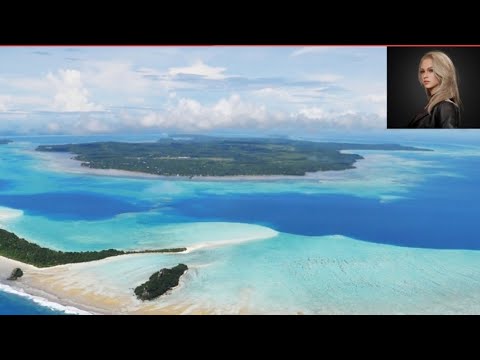
Nestled in the South Pacific, halfway between Hawaii and New Zealand, lie the Wallis and Futuna Islands. These islands are a French overseas collectivity, composed of two main islands, Wallis (Uvea) and Futuna, along with several smaller islets. Though less traveled compared to other Pacific islands like Fiji or Tonga, Wallis and Futuna are home to a rich tapestry of culture that weaves together ancient Polynesian traditions with modern influences. This unique blend makes Wallis and Futuna a fascinating destination for those interested in exploring deep-rooted cultures.
#### The Monarchy System
One of the most distinctive cultural aspects of Wallis and Futuna is its traditional monarchical system. Unlike most modern societies that operate under democratic or republican governance structures, these islands still embrace a system where kings (locally referred to as ‘Lavelua’ for Uvea island and ‘Tui’ for each district on Futuna) play pivotal roles in local governance alongside French administration. This distinctive system underscores a societal hierarchy deeply rooted in respect for tradition and lineage.
#### Traditional Architecture
The architecture in Wallis and Futuna is another reflection of the islands’ rich cultural heritage. The ‘fale fono’ or traditional meeting house is central to community life. Built from local materials such as coconut palm thatch for roofing and timber poles sourced from native trees, these structures are not only eco-friendly but also significant as places where important decisions are made by chiefs (known locally as ‘matai’). The design reflects an intricate balance between form, function, and symbolism central to island life.
#### Cultural Dances and Music
Dance and music are integral components of life in Wallis and Futuna, serving both entertainment and ceremonial purposes. Traditional dances like the ‘soamako’, performed with vibrant costumes accompanied by rhythmic beats played on indigenous drums such as the ‘tama’, tell stories or myths related to the islands’ history or natural environment. Music also plays a crucial role during religious festivals – particularly significant given that over 90% of the population adheres to Roman Catholicism.
#### Language: A Vital Cultural Thread
The native languages spoken on these islands – Wallisian (Uvean) on Wallis Island and Futunan on Futuna Island – act not only as tools for daily communication but also as vessels carrying centuries-old oral histories, legends, proverbs, prayers, spells, genealogies—the essence of their identity. Despite modern influences including the official administrative use of French language since their integration into French overseas territories roster post-1961 referendum – efforts towards preserving native languages continue through schools teaching indigenous languages alongside French.
#### Festivals: A Celebration of Life
Festivities held throughout the year mark various seasonal events or religious observances. One prominent festival is Saint Pierre Chanel Day commemorating Saint Pierre Chanel who brought Christianity to these shores during his mission work before his martyrdom on Futuna. During this day-long celebration occurring every April 28th residents partake in church services followed by feasting communal meals showcasing local foods such taro root cassava breadfruit alongside seafood which remains staple diet given surrounding ocean resources abundant area provides.
#### Unique Gastronomy
The culinary traditions of Wallis and Futuna offer yet another window into their culture characterized by an amalgamation flavors derived from land sea alike staples include root vegetables seafood pork chicken which often prepared using combinations herbs spices unique region Coconut milk commonly used cooking lending distinctive flavor texture dishes Furthermore methods cooking also reflect cultural heritage example earth ovens (‘umu’) still used special occasions cook food slowly using heat retained within stones method imparts unique taste cannot duplicated modern methods cooking.
### In Conclusion
Wallis and Futuna stand out in the Pacific not just for pristine landscapes but more so due deep cultural roots manifested through monarchy dance language cuisine architecture among other elements Despite challenges brought about globalization efforts preserve promote these traditions continue ensuring they continue thrive enjoyed future generations treasure troves waiting be discovered those seeking delve into richness human diversity far-flung parts world.
